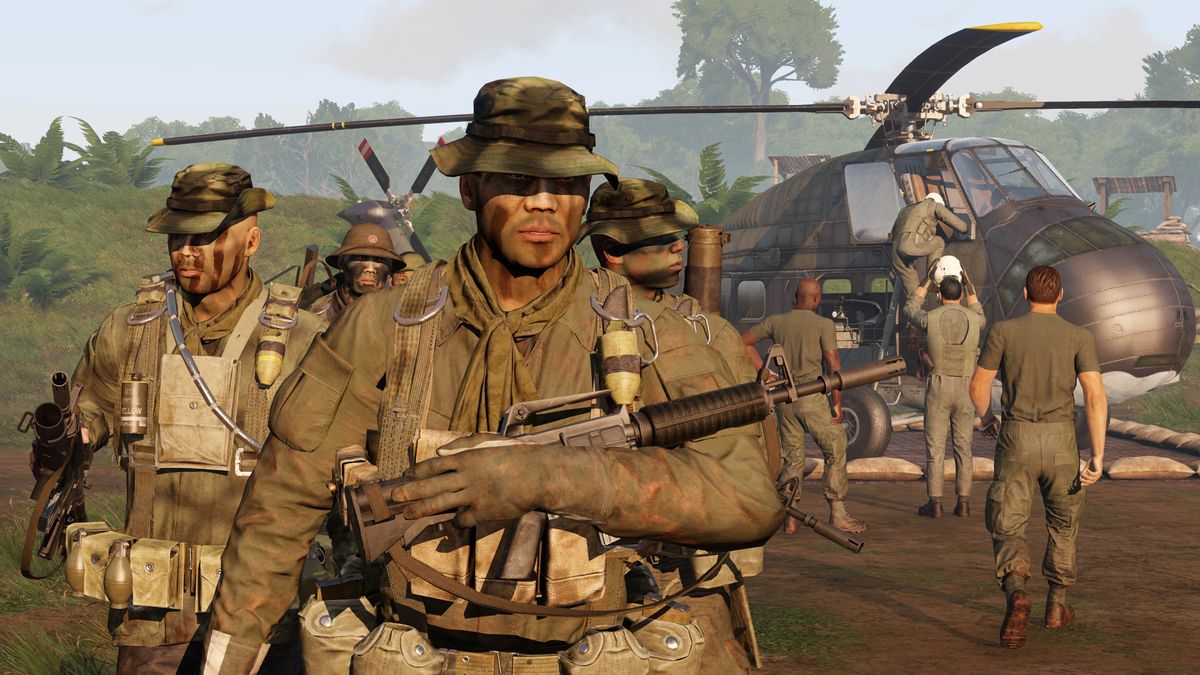Arma 3, Bohemia Interactive’s milsim sandbox, isn’t a game I see very often these days, except when it crops up in the news because someone’s trying to pass off game footage as part of a real conflict. It happens surprisingly often, like when an Indian news channel used it to claim Pakistan bombed Afghanistan in 2021. And it’s happened again, this time masquerading as footage of the Russian invasion of Ukraine.
Spotted by Bloomberg (via Kotaku), Facebook users were shown clips claiming to be from the invasion, including one that was presented as a Russian air assault. Arma 3 launched more than eight years ago, boasting an impressive level of fidelity at the time, but not so much that you’d mistake it for a real conflict under normal circumstances. In a low-quality social media clip, though, these completely fictional digital brawls can look startlingly real.
These clips were viewed on Facebook Gaming, which should have been a red flag, but they were presented as real videos of the conflict, some even sporting ‘Breaking News’ banners. Bloomberg reports that, before Facebook took them down, more than 110,000 people had viewed them, sharing them 25,000 times. On Twitter, meanwhile, a tweet sharing them got 11,000 likes and 2,000 retweets before Twitter removed it.
It’s not clear what the uploader’s objective was, but modern conflicts are full of disinformation and propaganda that spread like wildfire across social media, where the desire for engagement and the need to share absolutely everything trumps fact-checking.
The problem is serious enough that Facebook, which has previously taken a troublingly hands-off approach to dealing with disinformation, is actually taking sensible action. A “Special Operations Center” has been established, Facebook head of security policy Nathaniel Gleicher announced yesterday, which contains experts and native speakers who will monitor the invasion and what’s being shared on Facebook.
1/ In response to the unfolding military conflict in Ukraine, we have established a Special Operations Center to respond in real time. It is staffed by experts (including native speakers) so we can closely monitor the situation and act as fast as possible.February 24, 2022
See more
This goes well beyond removing videos, and includes giving users in Ukraine the ability to lock their profile with a single click to protect themselves online. Cyberwarfare is a big part of Russia’s strategy, which runs the gamut from major DDoS attacks to exploiting platforms like Facebook and Twitter.
These fake clips are not the only example of gaming and the invasion intersecting. Streamers in Ukraine have been sharing their harrowing experiences with their viewers, like popular Final Fantasy 14 streamer Zepla, who’s originally from Louisiana, but has lived in Ukraine for eight years. And as one of the most heavily populated countries in Europe, Ukraine has spawned a lot of game developers, including Stalker studio GSC Game World, which tweeted a plea for people to support the Ukrainian armed forces.
It pays to be especially savvy when trawling the internet at times like these, and it’s worth taking the effort to make sure you know where news or clips you’d like to share actually come from.
